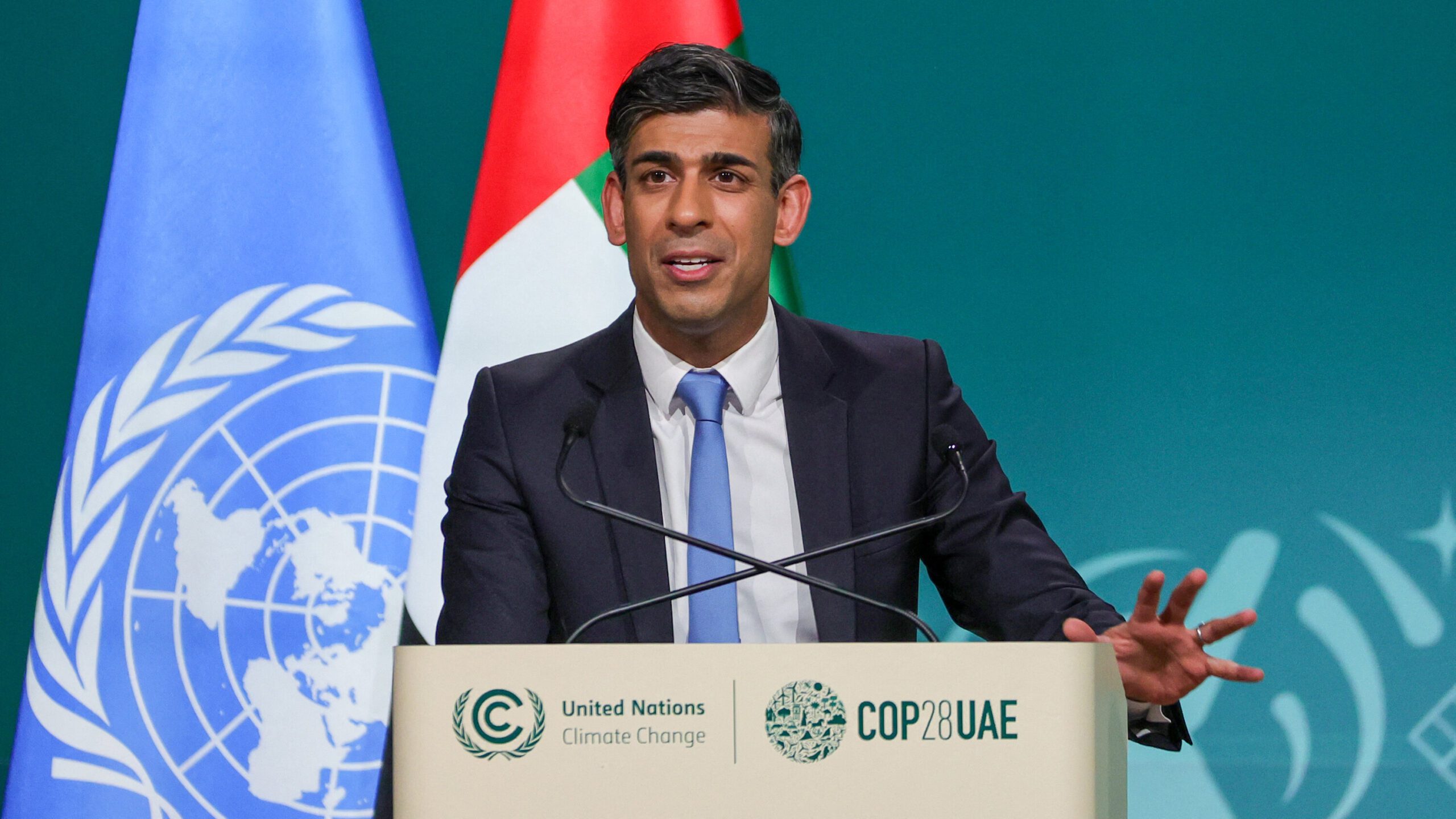As the world gathers at COP28 to address the pressing issues of climate change, UK Prime Minister Rishi Sunak finds himself in the spotlight for his seemingly inconsistent approach to climate policies. While advocating for a global phase-out of fossil fuels, Sunak faces accusations of hypocrisy due to recent decisions supporting more oil and gas exploration in the North Sea. This dissonance has sparked criticism from both domestic and international quarters, raising questions about the UK’s commitment to climate action.
The Global Stage:
On the international stage at COP28, Sunak joined other world leaders in supporting a resolution for the phasing out of fossil fuels. Proponents argue that such a commitment is crucial for achieving the goals set in the Paris Agreement and limiting global temperature rises. However, Sunak’s endorsement of this resolution has been met with skepticism, given recent domestic policy decisions that appear to contradict these global aspirations.
The North Sea Conundrum:
One of the most glaring inconsistencies is Sunak’s approval of more oil and gas exploration in the North Sea. This decision, announced just weeks before COP28, has drawn criticism for undermining the UK’s leadership role in global climate efforts. Critics argue that it is difficult to champion a phase-out of fossil fuels internationally while simultaneously supporting increased extraction at home.
Domestic Backlash:
Sunak’s climate policies have faced criticism from within his own party, with senior Conservatives expressing concerns about the lack of consistency. Lord Deben, former cabinet minister and chair of the climate change committee, stated that granting new oil licences is “economic nonsense” and undermines the UK’s commitment to net-zero goals. Lord Goldsmith, a former environment minister, labeled the PM’s approach as an “incoherent mess.”
International Repercussions:
The UK’s wavering stance on climate action has not gone unnoticed by the international community. Al Gore, former US vice president and climate advocate, expressed disappointment, stating that Sunak’s climate policies are “terrible.” Several representatives from other countries noted their disappointment with the UK’s domestic actions, undermining its credibility as a global leader on climate issues.
Sunak’s Defense:
Amid the criticism, Prime Minister Sunak defended the UK’s commitment to climate action during COP28. He emphasized the country’s achievements in decarbonization, citing a 48% reduction in emissions since 1990. Sunak also highlighted the UK’s status as one of the largest climate donors, contributing to global efforts to address climate change impacts.
Rishi Sunak’s climate policy dilemma highlights the challenges of balancing international advocacy with domestic energy needs. The tension between supporting a global phase-out of fossil fuels and allowing increased exploration in the North Sea underscores the complexities of navigating climate policies. As COP28 unfolds, the world watches to see if the UK can reconcile these seemingly conflicting priorities and uphold its position as a leader in the fight against climate change.
















